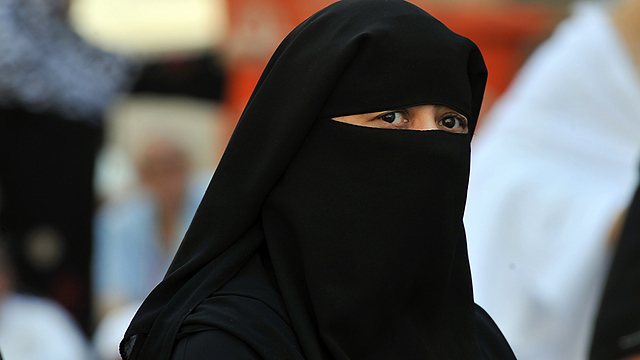For example, in a number of Paris suburbs, Muslim women walk around with long scarves that cover their hair and with surgical masks originally intended for medical usage on their faces. Police say that a number of women they arrested produced documentation supporting their medical claim to wearing the mask.
Related stories:
- Muslim girl can go to swimming lessons in 'burkini'
- Southern Swiss voters back ban on full-face veils
- France: 20 cars burned in wake of veil incident
The police and French judicial system face a slew of challenges in their attempt to enforce the burqa ban. Last July, 20-year-old girl Sandra Beline who converted to Islam, was arrested and taken to court because her face was completely covered and she refused to reveal it after officers confronted her.
The incident caused a riot that lasted several days.
Beline's trial was last week. She did not arrive, but sent a lawyer in her stead. The lawyer – and the judges – delayed the trial to allow the Constitutional Council of France to check the constitutionality of the law. At the same time, the European Court of Human Rights was asked to examine the legality of the French ban.
The "act prohibiting concealment of the face in public space" passed the French Senate on September 14 2010 amidst national and international controvery. According to the law, one who enters a store, hospital, school, court, or public transportation with such a garment must either get off or show one's face – with offenders likely to face charges or be fined.
The law stipulates a number of conditions under which face covering articles can be donned – for example cultural events, parties, religious services or medical conditions. However, offenders can still face fines reaching up to or be forced to participate in a citizenry course. According to the law, anyone who forces a woman to cover her face in public can face up to a year's sentence in jail and a €30,000 fine – or even double in the case of a minor.
The ban's supporters claimed that the law protects the secular principles which serve as one of the republic's central pillars; its detractors claim it is a populist law, citing the low number of those expected to be influenced by the law.
They further note that despite the fact that the law's language speaks of hats and masks, its true target is in fact Muslim women and an attempt to remove the presence of the burqa and hijab from the public sphere.
- Receive Ynetnews updates
directly to your desktop
















